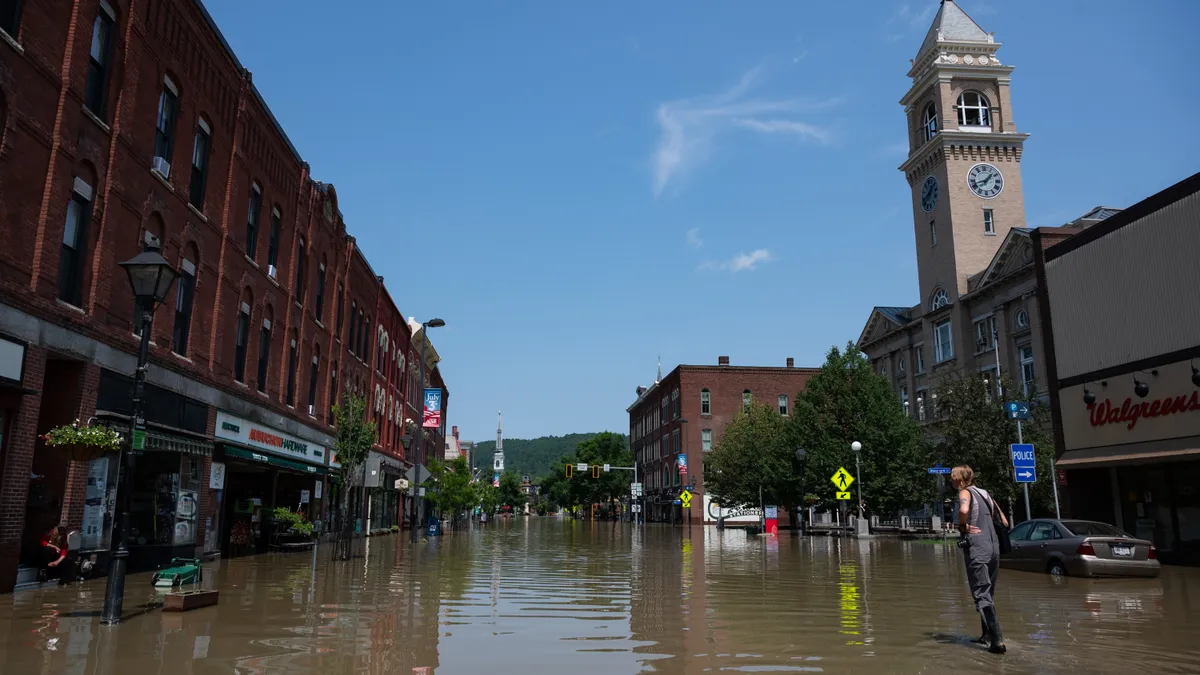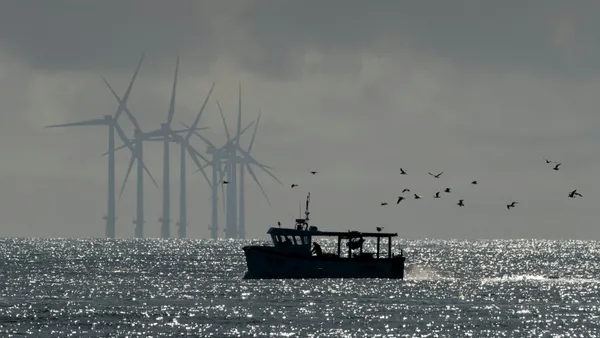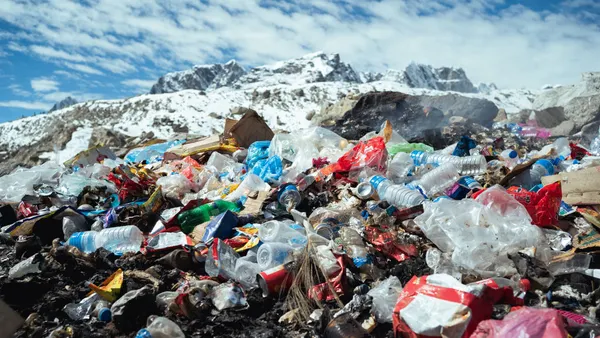Dive Brief:
- Vermont on Thursday became the first state to pass a law requiring oil and gas companies to fund the cleanup of damages caused to the state by climate change. Republican Gov. Phil Scott allowed the bill to become law without his signature, noting the toll extreme weather has taken on the state.
- The Climate Superfund Act creates a climate cost recovery program at Vermont’s Agency of Natural Resources, which will be responsible for collecting payments from the oil companies and using the funds for climate change adaptation programs.
- Under the new law, any entity or successor company that engaged in the trade or business of fossil fuel extraction or refining crude oil between the start of 1995 and the end of this year is strictly liable for a share of the costs.
Dive Insight:
The concept of state superfunds has gained traction this year, with three other states considering measures similar to the Environmental Protection Agency’s program to clean up contaminated sites and force responsible parties either perform or pay for clean up activities. While Vermont becomes the first state to sign the bill into law, similar legislation is being considered in Maryland, Massachusetts and New York.
The law will apply to any entities or successor entities that the Natural Resources Agency determines responsible for emitting 1 billion metric tons of greenhouse gas emissions over the covered time period. Each party deemed responsible will be liable for cost recovery equal to the ratio of the covered party’s share of greenhouse gas emissions to the total amount of greenhouse gas emissions from fossil fuel extraction or refining.
The bill was first introduced in the Vermont Senate in January and passed the chamber in April by a 26-3 roll call vote. The state’s House of Representatives passed the bill through its chamber with amendments May 6 by a 93-39 vote. The Senate then recognized the amended House-passed version before sending it to Scott’s desk May 10. Scott allowed the bill to become law last week, but noted in a May 30 letter to the legislature that he was concerned about its short- and long-term costs and outcomes.
“Instead of coordinating with other states like New York and California, with far more abundant resources, Vermont — one of the least populated states with the lowest GDP in the country — has decided to recover costs associated with climate change on its own,” Scott said.
The law appropriates $600,000 for the Natural Resources Agency in fiscal year 2025 as its only funding: $300,000 to implement the act’s requirements, including administrative, technical and legal support, and $300,000 to hire consultants or third-party services to assist in assessing the amount of greenhouse gasses. The first $300,000 that the fund recovers will be used to refund the state’s general fund.
“Taking on ‘Big Oil’ should not be taken lightly,” Scott continued. “And with just $600,000 appropriated by the Legislature to complete an analysis that will need to withstand intense legal scrutiny from a well-funded defense, we are not positioning ourselves for success.”
Despite his concerns, Scott said he understands “the desire to seek funding to mitigate the effects of climate change that has hurt our state in so many ways,” and is comforted by the fact that the law requires the Natural Resources Agency to issue a feasibility report to the legislature in January 2025. He said that the report will allow the state to re-examine its strategy.










